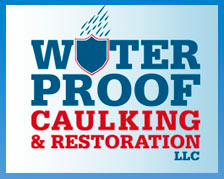As a commercial building owner or manager, you must balance many responsibilities, including facility maintenance. However, the caulking on your building is one area that you may not readily consider when evaluating what needs to be repaired or replaced. In order to make the right decisions for your building, it is important that you understand how caulk works, the issues that you may face and how to spot them, as well as which type of caulk may work best for your use. This guide can help you get started on those questions, but do not hesitate to reach out to a commercial caulking professional for more personalized guidance.
What Commercial Caulking Accomplishes For A Commercial Building
Caulking is a vital part of a building’s function, but it tends to blend in so well that it can be easy to overlook it entirely when considering areas that may need repair. Caulking serves as a sealant, blocking off areas where sections of a building join together, such as door frames and windows. Caulk that is installed properly will create a tight seal on these seams, keeping unwanted intruders out of the building and contributing a composed, well-maintained aesthetic to the building. It also plays a major role in atmospheric control within the facility; cool air stays in during the summer, and warm air does not escape during the winter. If caulk becomes compromised, it will lose its ability to completely seal a seam, which can introduce a variety of problems.
Not only can pests like insects enter where caulk has peeled or flaked away, but water can also enter the same way. When water intrudes from the exterior of a building, it can begin to cause mold and rot problems with the interior walls and insulation. In addition, damaged caulk no longer seals gaps, which can create a draft that increases your energy bills as you compensate with an air conditioning or heating system that runs more often.
Common Caulk Issues And Lifespan
Caulk is not meant to last forever. In the hands of a professional who understands how to apply the caulk correctly and in the right conditions, polyurethane caulk can last between five to ten years, and silicone caulk may last for as many as 20 years. However, when caulk has reached the end of its lifespan or has been damaged by excessive friction or exposure to the elements, it will begin to show signs that it is no longer doing its job. You may notice that it appears flaky, or that it is peeling up from the wall or even dangling. Additionally, your caulk may begin to show signs of stains or even mold, which can dig in and break the caulk’s seal with the surface. In any of these cases, it is time to have the caulk removed entirely and redone; caulking on top of compromised caulk only delays the problem and may prevent a complete seal from being formed in the first place.
Choosing Between Silicone And Polyurethane Caulk
More than one type of caulk exists, but silicone and polyurethane caulk are not interchangeable. They each serve specific functions, which means that your building may succeed better with one or the other. In general, silicone tends to last longer and does not break down as easily; however, in exchange, it also usually costs more. Despite this, it is good at handling UV rays in sunny climates, and it expands and contracts well with the cold. Still, silicone does not bind well to some materials, like wood.
In contrast, polyurethane caulk is more affordable in exchange for a shorter lifespan on average. The UV rays of the sun can degrade it because it is an organic material, but it is typically easier to apply and is very flexible. It resists chemicals and nearby corrosion well, which means that it may be the right choice for certain building types or large projects on a budget. However, you do not need to worry about making this determination all on your own; a professional caulking expert can offer personalized guidance based on your specific building.
Rely On A Professional For Your Commercial Caulking
Caulking (both removal of old caulk and the installation of new material) must be done carefully in order to ensure that your caulk seals properly and does its job. This is why caulking is not cut out as a DIY task; it is best to leave it to the pros. The experts at Waterproof Caulking & Restoration would be happy to help you choose the type of caulk that is right for your building and install it correctly. Reach out to schedule an appointment.
